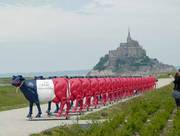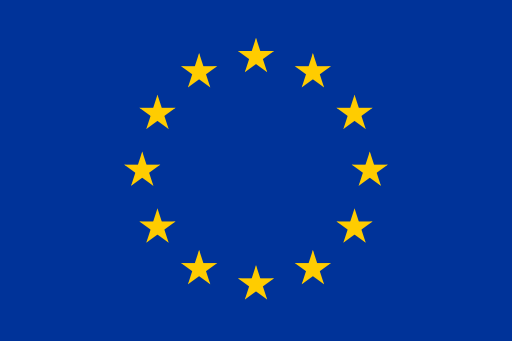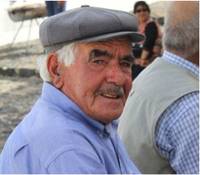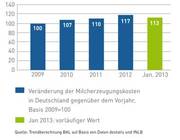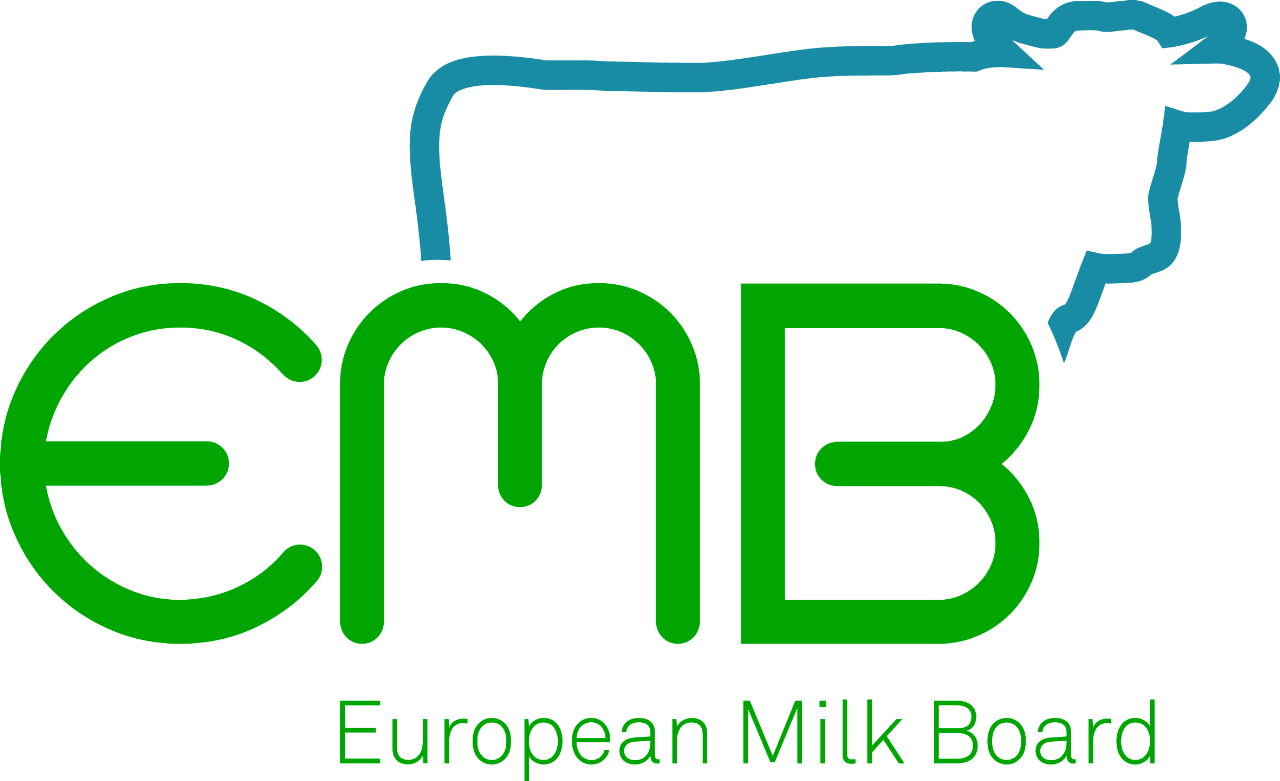EMB Newsletter July 2013
Newsletter as PDF
Contact
European Milk Board
Bahnhofstr. 31
D-59065 Hamm
Phone: 0049/2381/4360495
Fax: 0049/2381/4361153
E-Mail: office@europeanmilkboard.org
Website: http://www.europeanmilkboard.org
Newsletter as PDF
Contact
EMB - European Milk Board asbl
Rue de la Loi 155
B-1040 Bruxelles
Phone: +32 - 2808 - 1935
Fax: +32 - 2808 - 8265
Dear Dairy Farmers and Interested Parties,
After the reform is before the reform! On 26 June, the representatives of the Parliament, Commission and Council of Ministers agreed in their “trilogue” on the future CAP. A key component of these negotiations for us dairy farmers was what makes up the Common Agricultural Market Organisation. Above all, the crisis instrument of voluntary production cuts called for by the European Parliament was a hot topic of debate right up to the last minute. In the end, the decision on this instrument was deferred to the conference in September announced by Commissioner Ciolos. The same goes for the Parliament’s proposal to set up a market monitoring agency. So, yet another foul compromise. Deferring instead of deciding!
But hang on! For in spite of or precisely because of the heated discussion in the trilogue there is no cause for a doomsday mood. So we dairy farmers can regard the reference to the conference scheduled by Ciolos with mixed feelings.
On the one hand, an opportunity has undoubtedly been missed: that of making the dairy markets in Europe resistant to crisis as quickly as possible with effective and cost-efficient instruments. The potentially positive approaches in the political agreement of granting producer organisations a bigger role on a national level in the event of a crisis are certainly inadequate for this.
On the other hand, the Parliament is by no means alone in its initiative. Recently there have been more and more voices warning against a total deregulation of the milk market. For instance, a short time ago the Committee of the Regions raised important issues in a position paper regarding the development after 2015. And during the negotiations the Commissioner himself said that he felt the issue of functioning milk markets was too important to jeopardise with hasty decisions. The European Economic and Social Committee and the European Court of Auditors have already stated in the past their concerns about abolishing the quota regulation without there being a replacement.
The conclusion the EMB draws is: keep at it. The plan must be to carry on convincing society and the political decision-makers, with proficient concepts and good arguments, of the necessity of universally applicable conditions for the milk market. In this context the discussion on the voluntary production cuts as an instrument of crisis was extremely helpful.
Romuald Schaber (President of the EMB)
Bad weather causes crop failures and feed bottlenecks in Europe
The bad weather until almost the middle of this year damaged agriculture throughout Europe, in some cases resulting in drastic consequences for milk producers. Dairy farmers from Ireland to Italy have been affected.
For the first time in its history, Ireland had to import animal feed. Large quantities of feed in the form of hay and silage were imported from Great Britain and mainland Europe.
Launch of Fair Milk in France
On 19 June 2013, the dairy farmers of APLI, one of the two French EMB member organisations, symbolically started the Fair Milk project in France at the famous Mont-Saint-Michel in Normandy. The timing was deliberate, as almost exactly four years ago at precisely the same place there was a large demonstration of French and European milk producers during which thousands of litres of milk were sprayed in protest against the drastic economic situation in the milk market.
Committee of the Regions shares European dairy farmers' major concerns about liberalisation of milk market
In its opinion of 30 May 2013, the Committee of the Regions (CoR) expressed its views on the suppression of the quota system in Europe in 2015. In fundamental issues, the CoR coincides with the positions of the European Milk Board (EMB) and calls for regulation instruments for the milk market to be put in place.
(Brussels, 18th June 2013) The CoR, in its opinion, states that in general the instruments of the so-called EU Milk Package will not be not sufficient to alleviate the negative consequences for European regions and family farms of the suppression of milk quotas in 2015.
Pensioners feeding the population of the EU
European agricultural policy to date has failed and offers no prospects for young farmers in the EU. That is borne out by hard facts: more than three million farms have given up in the last ten years because no successor could be found to run them. And this development will continue, for one third of farmers in the EU are over the age of 65.
MEG Milch Board publishes updated Milk Marker Index
MEG Milch Board w.V. has been publishing the Milk Marker Index (MMI) in Germany since the beginning of 2013. The index shows the imbalance between production costs and milk prices. So for the first time German dairy farmers now have a mechanism for producing reasoned arguments in price negotiations.
EMB Calendar
Please find below some of the most important events in July 2013:
2.07.: Meeting of the Advisory Group Milk in Brussels
17.07.: Meeting with a representative of the EU Committee of the Regions in Brussels
24.07.: Meeting of the EMB Board in Brussels
Full Texts
Bad weather causes crop failures and feed bottlenecks in Europe
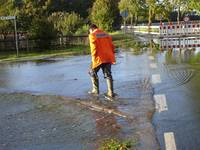
The bad weather until almost the middle of this year damaged agriculture throughout Europe, in some cases resulting in drastic consequences for milk producers. Dairy farmers from Ireland to Italy have been affected.
For the first time in its history, Ireland had to import animal feed. Large quantities of feed in the form of hay and silage were imported from Great Britain and mainland Europe. Silage was already of inferior quality in 2012 owing to the poor weather conditions, necessitating the use of additional concentrated feed. This bad situation continued until May 2013 because of the inclement weather.
In Germany, rainfall in recent weeks has produced an extreme flood, primarily in the country’s eastern and southern federal states. Numerous cereal fields and forage areas have been submerged, resulting in considerable crop failures and feed bottlenecks.
Farmers in Austria have also felt the rough weather. The flood has hampered milk collection and delivery in different regions. In some cases Austria’s dairy farmers have already used up stocks of hay and are now dependent on fresh grassland fodder. As no feed can be harvested they now have to reckon with extra costs for buying feed.
In Italy the strong rainfall between January and May 2013 severely damaged agricultural cultures, especially in Lombardy. The losses and failures of corn, the most important culture in the region, are estimated at 30 to 50%. With hay, grain, grapes and vegetables, too, losses are estimated at over 40%. The upshot was that corn had to be reseeded in June. Haymaking had to be delayed until early June this year, when normally they are harvesting for the second time. That is why APL Italy called on the regional government to declare a state of emergency for farmers to be given financial compensation for their losses. This brought about a positive reaction from the Milanese regional government.
Regina Reiterer (EMB)

